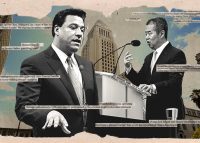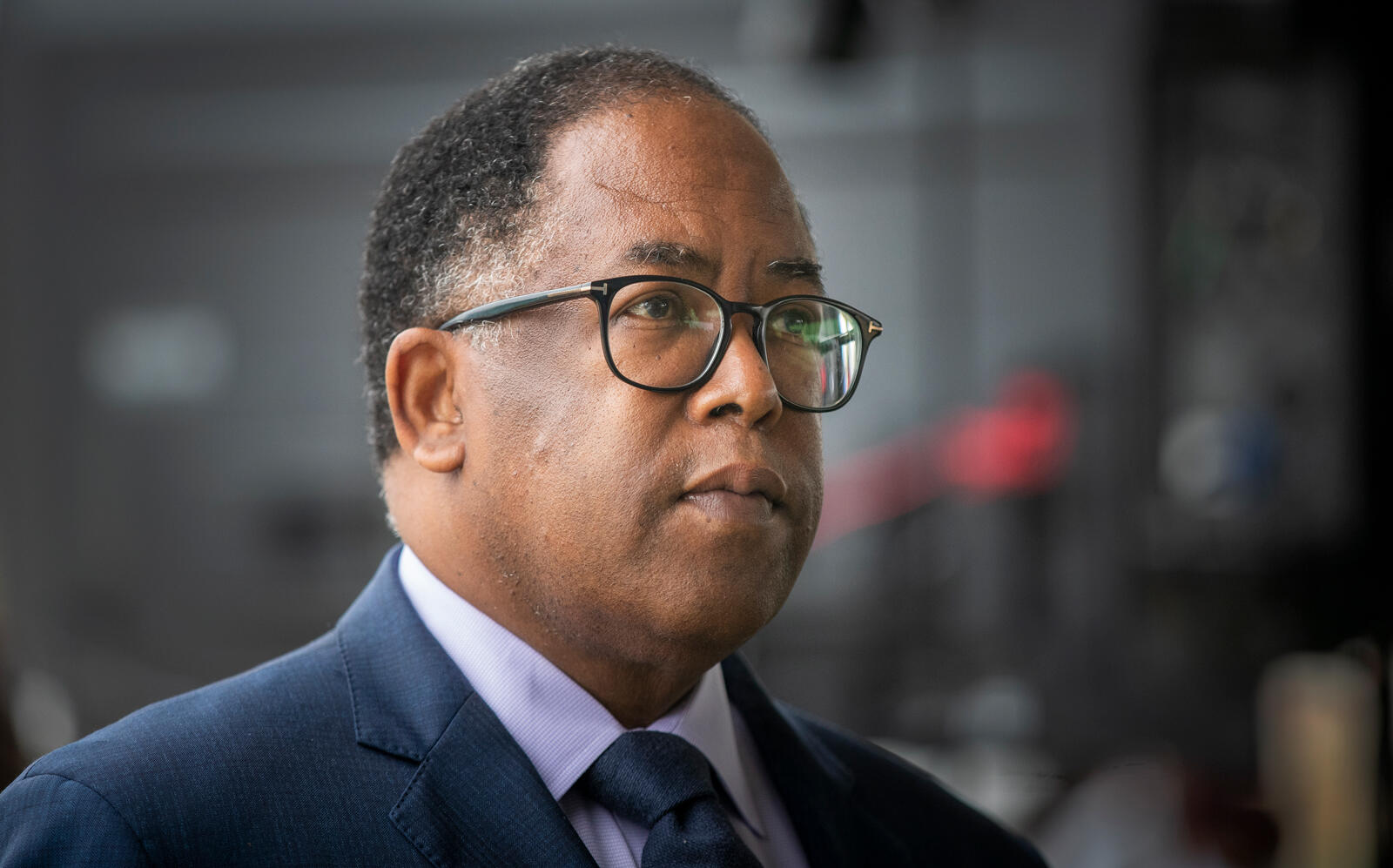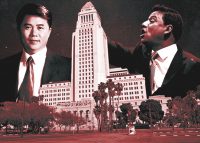 Huizar and LA developer deny charges in pay-to-play scheme
Huizar and LA developer deny charges in pay-to-play scheme
Trending
No direct tie to developers in LA’s latest scandal
Indictment of Mark Ridley-Thomas involves prior post with county, USC

Any fallout for the real estate industry from the latest political scandal in Los Angeles looks likely to be indirect at this point, without the red-meat connections that highlight separate federal cases pending against local public officials.
The latest centers on last week’s indictment of Mark Ridley-Thomas, elected to represent the 10th District of the City of Los Angeles. It’s an area that stretches from upscale enclaves such as Baldwin Hills to Koreatown, taking in parts of the Leimert Park, West Adams and Crenshaw districts, among other areas seeing redevelopment and gentrification.
Ridley-Thomas immediately denied the charges of influence peddling related to his dealings with a dean at USC, and offered to “step back” from his duties in light of the indictment. His colleagues on the 15-seat Los Angeles City Council voted this week to suspend him without pay or benefits as the federal case proceeds.
Ridley-Thomas has not attached his public persona to specific high-profile development projects in his district since taking office last year, eschewing a political tactic that’s common among some of his colleagues. But his suspension, which will likely leave his office under the guidance of a city-appointed caretaker for some time, could nevertheless inject a degree of uncertainty over approvals for projects in his district. A protracted fight over his seat –– should he resign or be removed from office –– also could roil the landscape for developers, who already face laundry lists of activists’ objections and requests on nearly any project proposed in the city.
The good news so far for developers: worst-case scenarios don’t seem likely in the near term.
“Frankly, I don’t think this changes anything really for the development community,” said land use attorney Ryan Leaderman. “I think people should be smart enough to know to keep their nose clean” after the prior indictments hit directly on real estate development.
The prior case became public three years ago, with a raid on the office and home of former 14th District City Councilmember Jose Huizar. He was later indicted, and several other public officials and two developers have been implicated in the case.
Huizar was chairman of the powerful Planning and Land Use Management Committee, and stands charged with accepting at least $1.5 million in bribes and gifts from developers in exchange for green lighting projects.
He has pleaded not guilty, with a trial scheduled to start in June.
The charges against Huizar have echoed long-held complaints from various quarters of Los Angeles about a growing culture of corruption at City Hall, where campaign donations are viewed as greasing the wheels of approvals for real estate development, and individual councilmembers hold sway over projects in their districts. A measure of confirmation came when a colleague of Huizar’s — former 12th District representative Mitchell Englander –– pleaded guilty to related charges. A lobbyist also has admitted guilt, and other public officials have been indicted.
Englander began a 14-month prison sentence in June.
The differences between the two separate federal investigations start with the particular accusation against Ridley-Thomas. The U.S. Attorney’s office contends he used his influence unduly to send contracts to USC in exchange for the school providing a scholarship and job for his son Sebastian, also a local politician.
Another key difference between the cases: the allegations against Ridley-Thomas are tied to his tenure on the Los Angeles County Board of Supervisors, where he served for 12 years before returning to the L.A. City Council with his election to the 10th District seat last year.
Ridley-Thomas remains among the city’s most influential politicians so far, with especially strong ties in the Black community. He has served in both houses of the state legislature in addition to his tenures at the city and county, and spent 10 years leading the Los Angeles chapter of the Southern Christian Leadership Conference before running for office.
He has retained support from several fellow politicians and a number of community leaders in the immediate wake of his indictment, and gotten generally light treatment in the local press.
Ridley-Thomas has repeatedly pledged to work to address the crisis of homelessness in the city despite his legal woes –– efforts that would no doubt have been aided by his prior standing as one of three members of the P.L.U.M. committee.
The allegations against Ridley-Thomas are another blow to USC, which has been disgraced in recent years by both the sweeping college admissions scandal and a years-long sex abuse scandal that ultimately cost the school more than $1 billion in settlement fees. The university’s woes have extended into real estate: Amid a financial shortfall, USC recently offloaded its president’s mansion and is still seeking a buyer for a Frank Lloyd Wright-designed house the university owns in the Hollywood Hills and listed early this summer. The listing price on that home has since dropped by more than $1 million.
The case against Ridley-Thomas isn’t necessarily contained to his dealings with USC, though. His former colleagues on the county board voted this week to hire an independent forensic auditor to review “all service contracts with a cumulative value above $5 million approved by this board between the years 2015-2020.”
Read more
 Huizar and LA developer deny charges in pay-to-play scheme
Huizar and LA developer deny charges in pay-to-play scheme
 "Casino Loyale": Developers, ex-LA deputy mayor indicted in Huizar corruption scandal
"Casino Loyale": Developers, ex-LA deputy mayor indicted in Huizar corruption scandal




